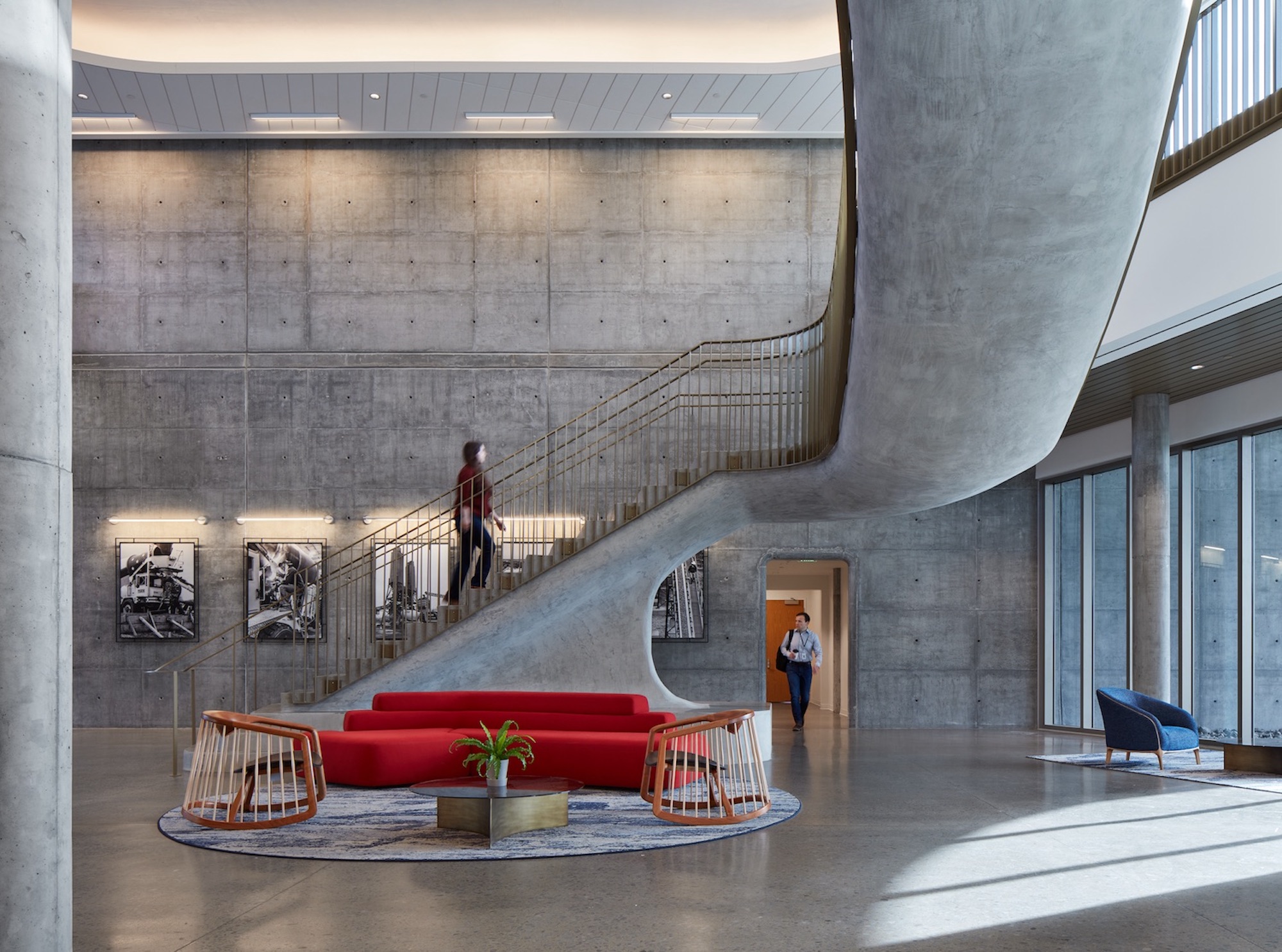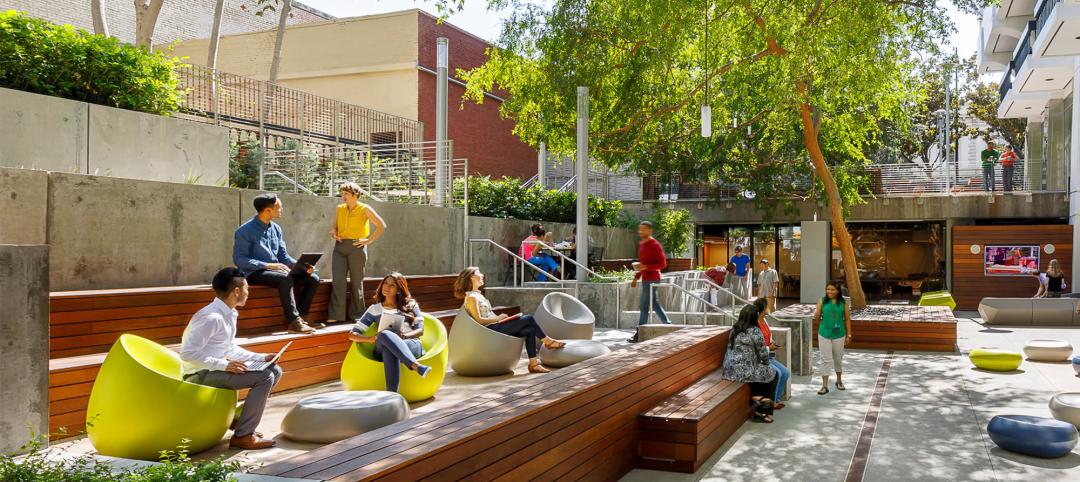In 1999, Tennessee concrete company Smyrna Ready Mix started off with just three trucks. Since then, it has grown to 5,400 employees in 16 states. Last year, the company moved from its small office in downtown Nashville to its new corporate headquarters on an 800-acre site.
Designed by EOA Architects to showcase various concrete processes and applications, the five-story, 85,000-sf building’s vertical layering mimics the patterns in the company’s stone quarry, located on the opposite end of the campus site. The building’s glass and concrete bands are meant to mirror the quarry’s natural contours and striations.
Inside, the helix of the building’s circulation patterns draws inspiration from the shape of a concrete mixing truck drum. Exposed concrete walls extend unobstructed from the first through fifth floors. The shear wall, the elevator, and the stair cores are 18-inch-thick poured walls with a custom radius, minimizing the amount of finishing work needed post-pour.
The interior design also references the company’s brand and industry. Custom-designed light fixtures echo the forms of concrete drums. The steps’ curved underside nods to the supply chutes used to pour concrete from the mixing drum. In the training room, the wet bar’s backsplash has been made with repurposed test cylinders, which are used to determine the strength of a mixed concrete batch. Furniture and textiles incorporate the red, white, and blue colors of the company’s logo.
The project also features corporate amenities for onsite staff and drivers, including dining, a fitness facility, training and community rooms, and a daycare center for 100 of the company and community’s children. Future plans for the campus include walking paths.
On the Building Team:
Owner: SRM Concrete
Design architect: EOA Architects
Architect of record: EOA Architects
MEP engineer: I.C. Thomasson Associates
Structural engineer: EMC Structural Engineers
General contractor/construction manager: DPR Construction
Here is the design statement from EOA Architects:
Smyrna Ready Mix is a family-owned and operated concrete company founded in Smyrna, Tennessee in 1999. Beginning with only three trucks, the company has grown to 5,400 employees in 16 states. This dramatic expansion meant it was time to move from a cramped office in downtown Nashville to a new corporate headquarters on an 800-acre site near an interstate interchange just south of the city. Here, the new building will help anchor a new mixed-use development, provide a landmark for a new corporate campus and help definite this gateway to the town of Smyrna.
Office Building as Billboard
Designed to showcase the varied types of concrete processes and applications, the vertical layering of the five-story building mimics the rhythms found in the company’s stone quarry, also located on the site. The building profile rises at the opposite end the site from the sunken quarry, creating an inverse relationship that guides the design. The building’s floor plate pushes and pulls to create an organic form with glass and concrete bands mirroring the quarry’s natural contours and striations.
Full glazing takes advantage of surrounding views and showcases the structural components, including numerous types of concrete and finishing styles. Slender 16-inch diameter columns made of a high-strength concrete mix balance on elegant bases tapered to 10 inches at the first floor and do the work of a typical 24-inch column. Cantilevered post-tension slabs demonstrate the material’s sculptural possibilities. The building contains no 90-degree edges; everything is rounded, creating a dynamic flow that further reinforces concrete’s versatility.
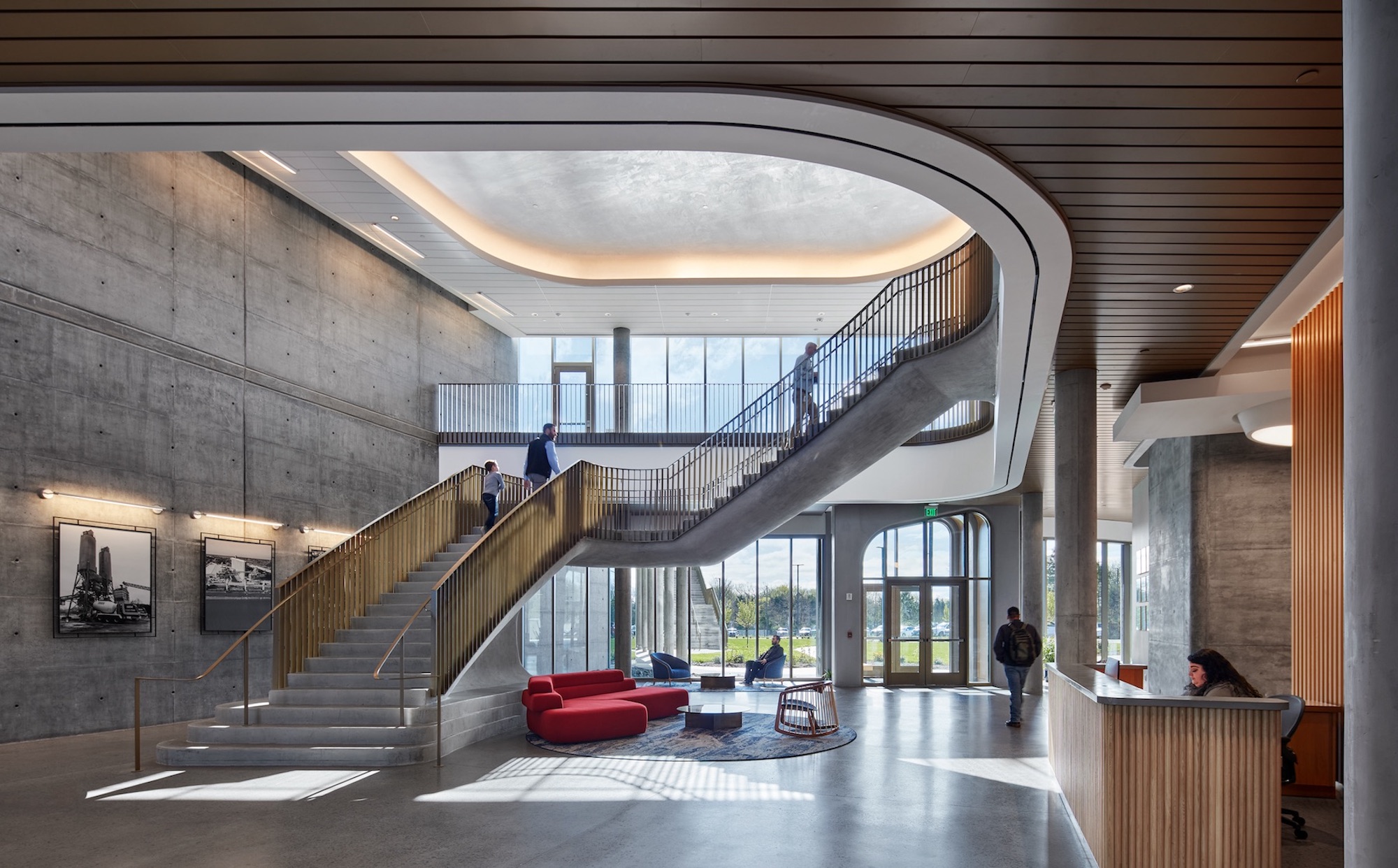
Workplace design uses lightness, movement
EOA steered away from a brutalist concrete expression to emphasize light and lightness and create a warm and welcoming environment. Users enter the building through three large concrete fins that provide the framework for the entry vestibules. The lobby floor is a custom concrete mix developed by EOA and SRM that resembles terrazzo. The lobby’s material palate adds a vertical oak motif complemented by champagne colored metal ceilings and railings. A double cantilevered concrete stair anchored in front of the exposed double-height concrete shear wall cascades gracefully into the lobby space, establishing the sense of open movement that permeates the building.
Inspired by the shape of a concrete mixing truck drum, the design incorporates an internal helix into the building’s circulation patterns. Vertical circulation is highlighted through the use of exposed concrete walls that extend unobstructed from the first through fifth floors. The shear wall, as well as the elevator and stair cores are 18-inch-thick poured walls with a custom radius to soften the edges and minimize the amount of finishing work required post-pour. These elements were left in a natural sculptural state with only a matte finish sealer applied to allow the form-work joints to cast shadows as sunlight moves through the space.
Artful connections to the company's brand and industry infuse the interiors: Custom designed light fixtures echo the forms of concrete drums. The curved underside of the monumental steps is a nod to the supply chutes used to pour concrete from the mixing drum. In the training room, test cylinders, used to determine the strength of each mixed concrete batch, were cut and re-purposed as the backsplash of the training room wet bar. Furniture and textiles subtly incorporate the red, white and blue colors of the company's logo.
Office building supports family business, community vision
The family had a specific and progressive vision for its new home. It was important to them to invite the community into the building and onto the campus, which includes a historic community cemetery. Future plans include walking paths to create a larger, healthy holistic environment. The project also prioritized unprecedented corporate amenities for both on-site staff as well as drivers: the first floor includes on-site dining, a fitness facility, training and community rooms as well as a daycare center for 100 of the company and community’s children.
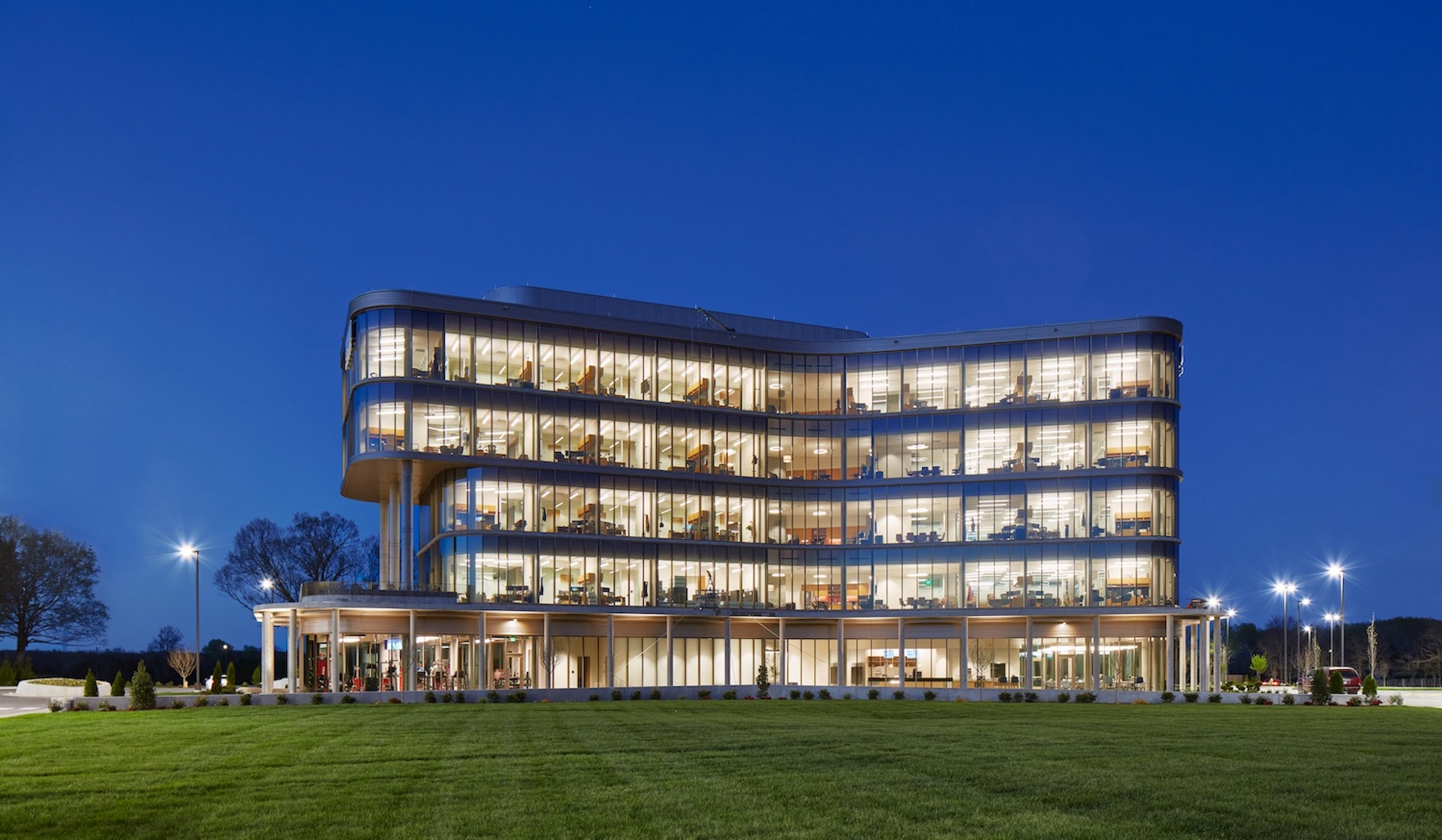
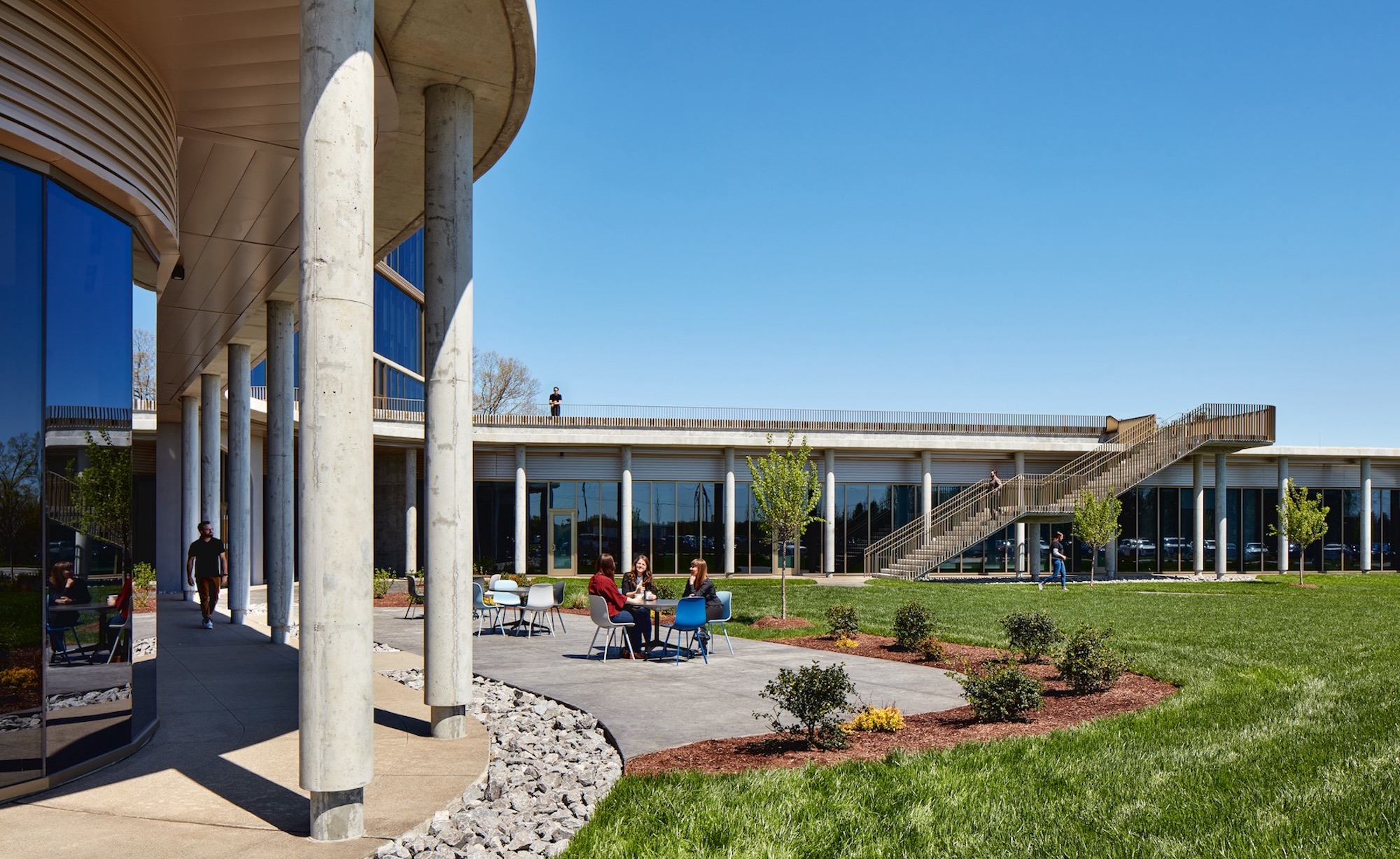
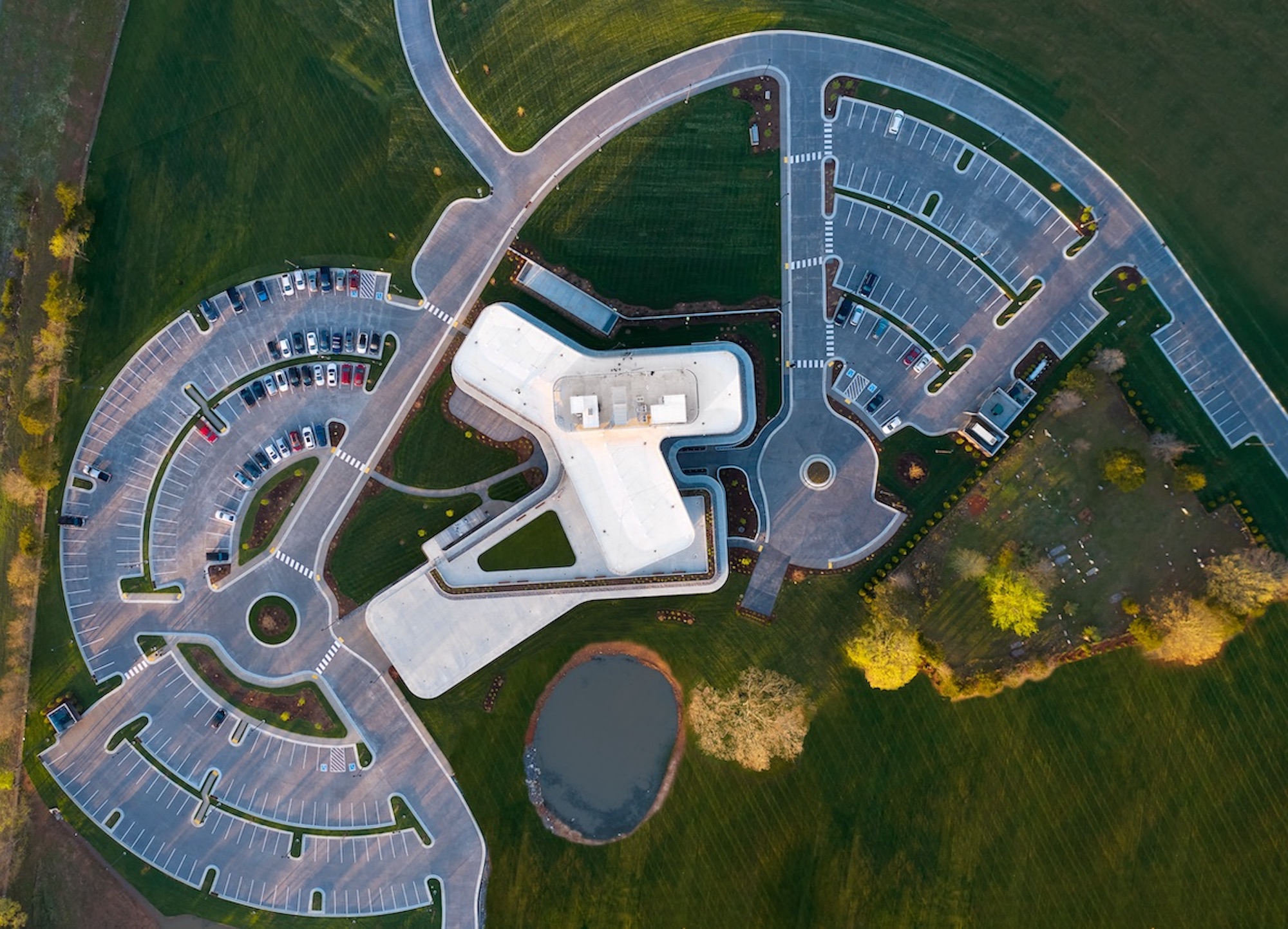
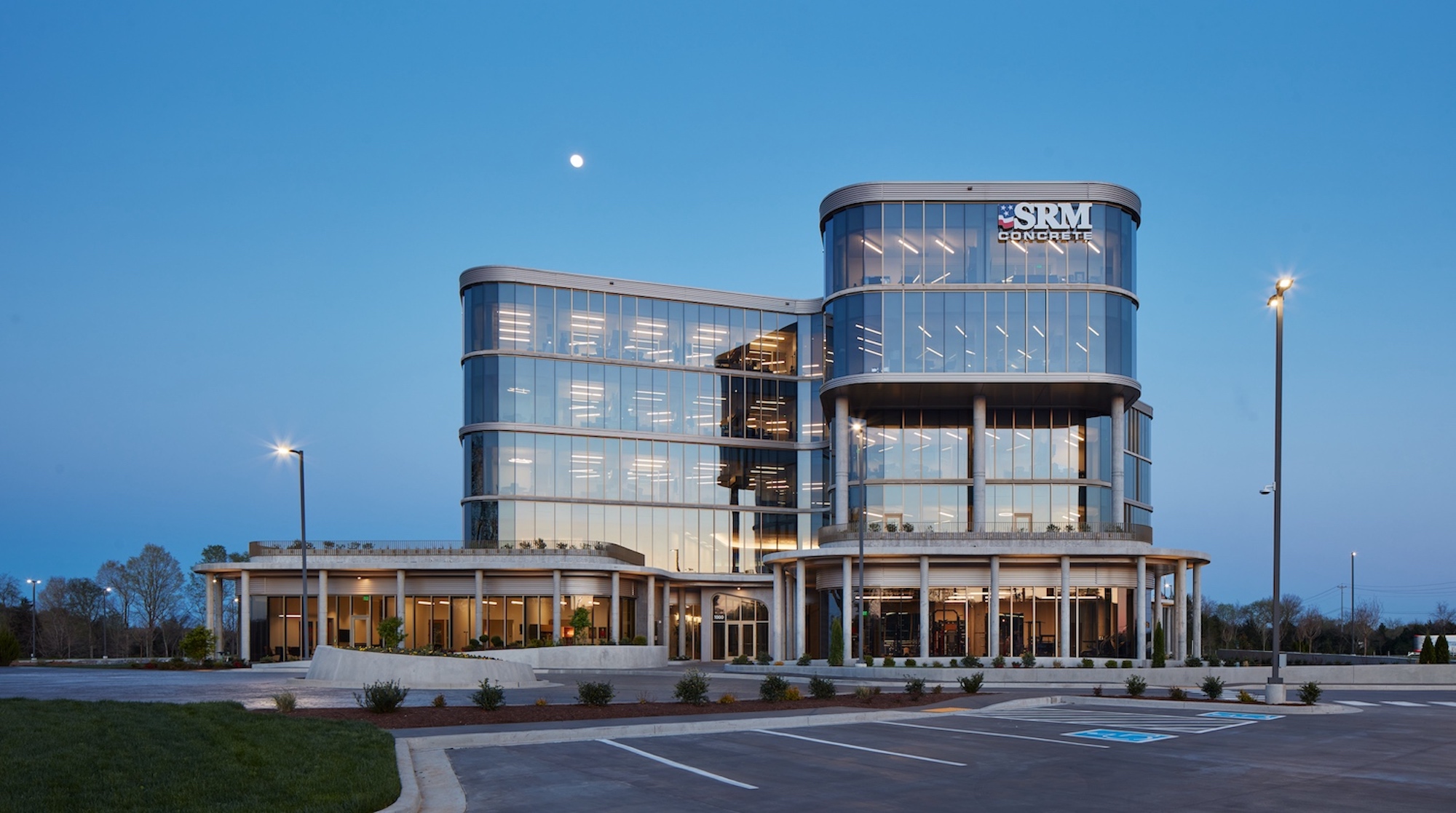
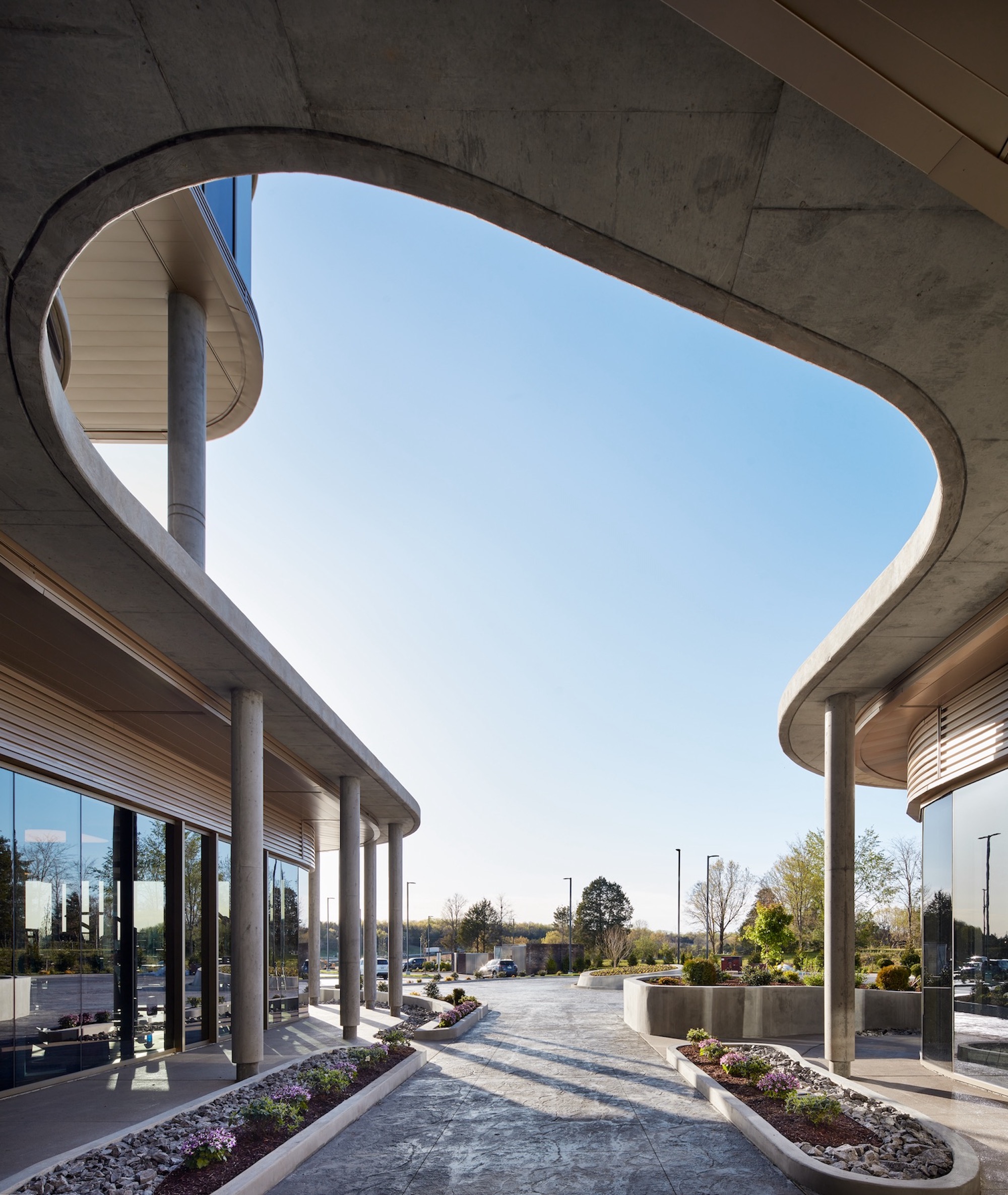
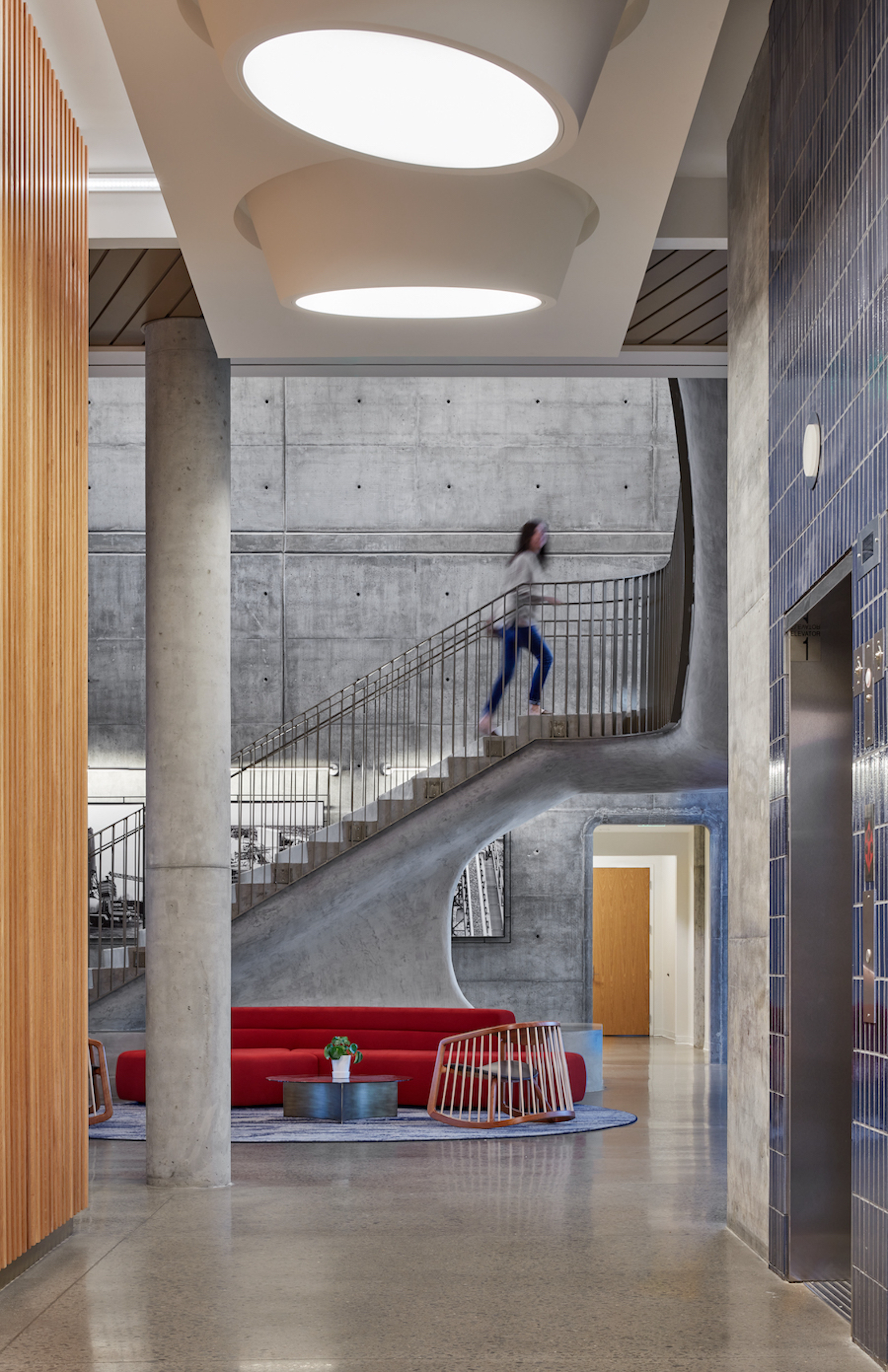
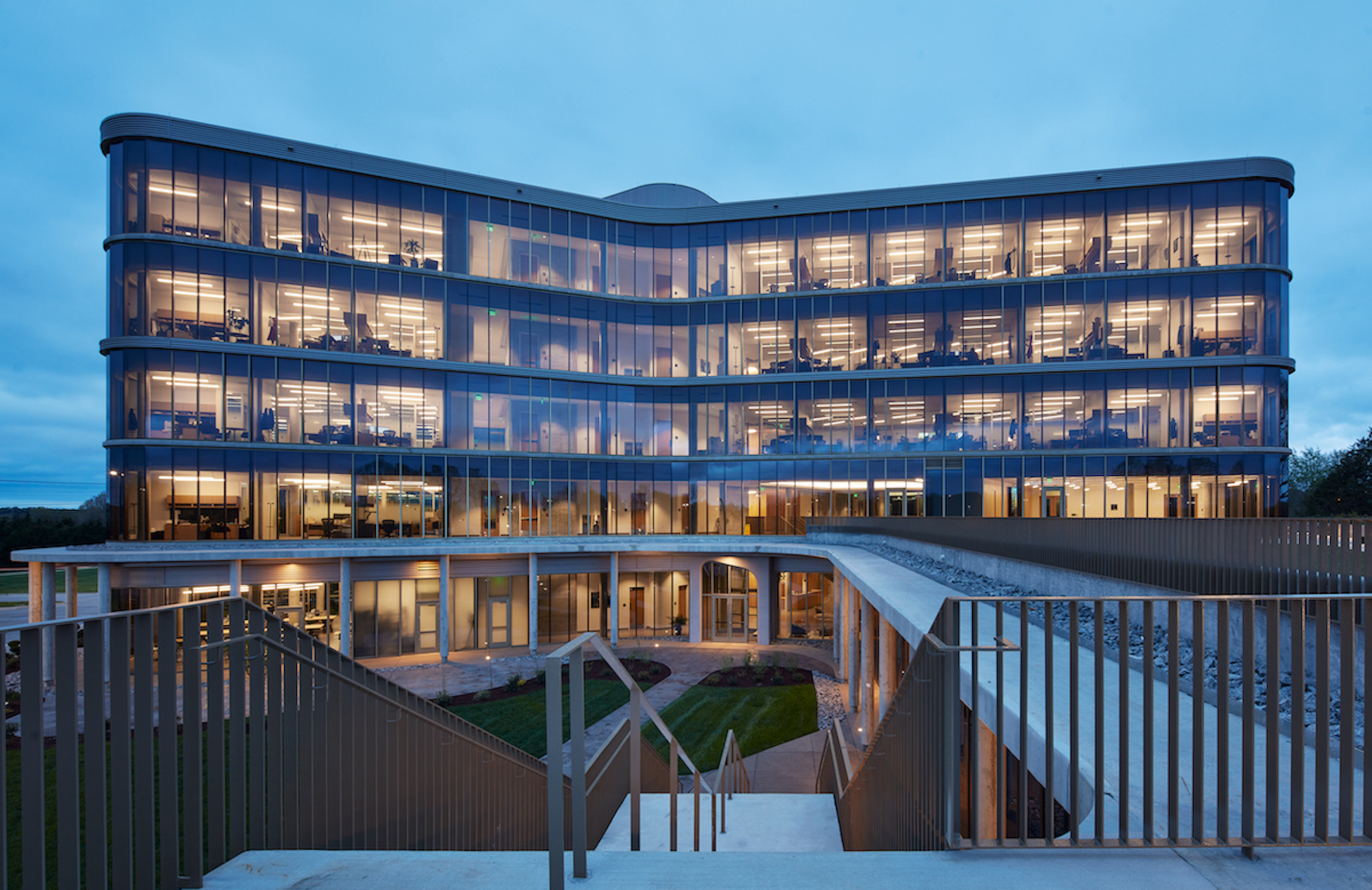
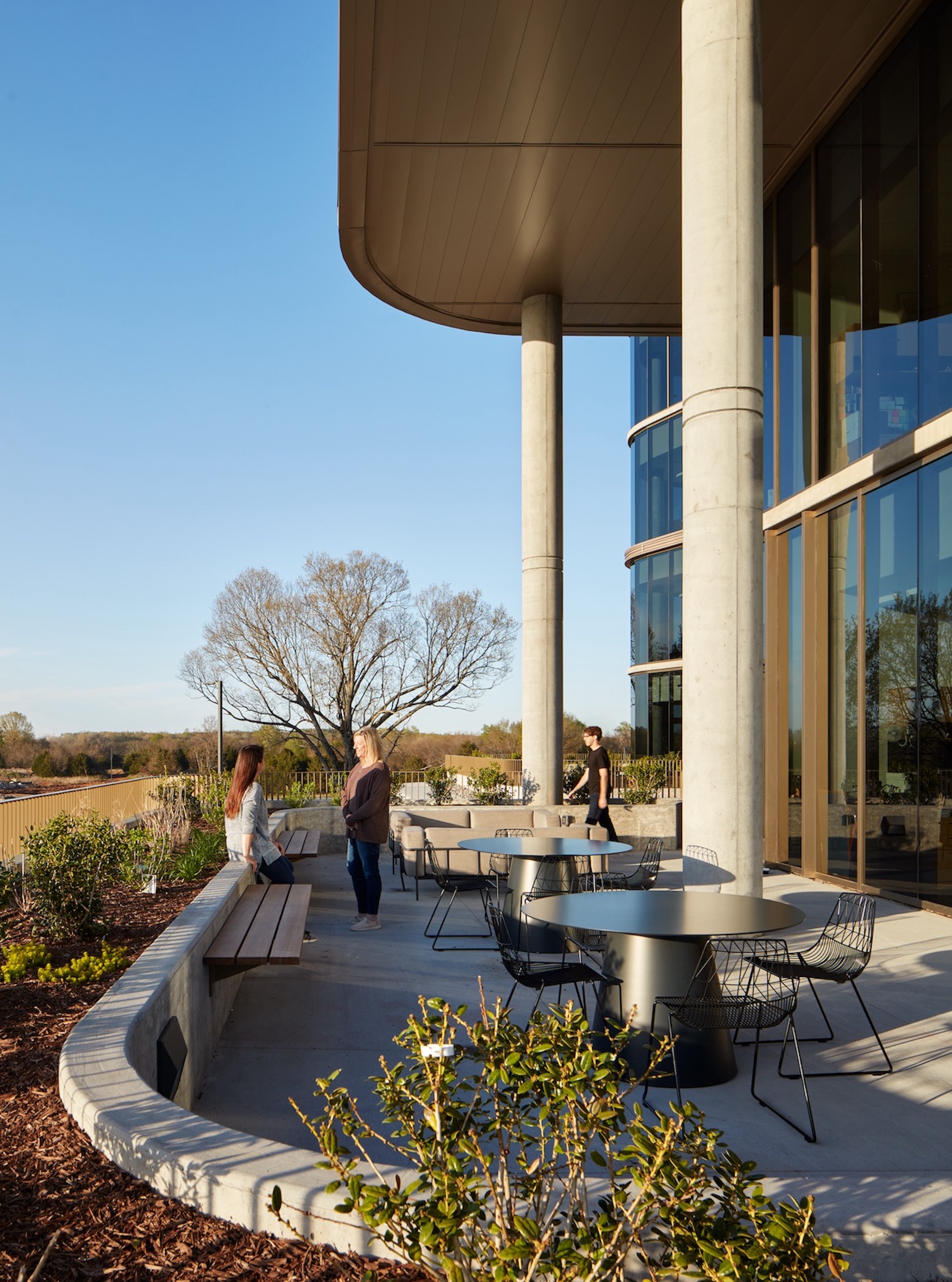
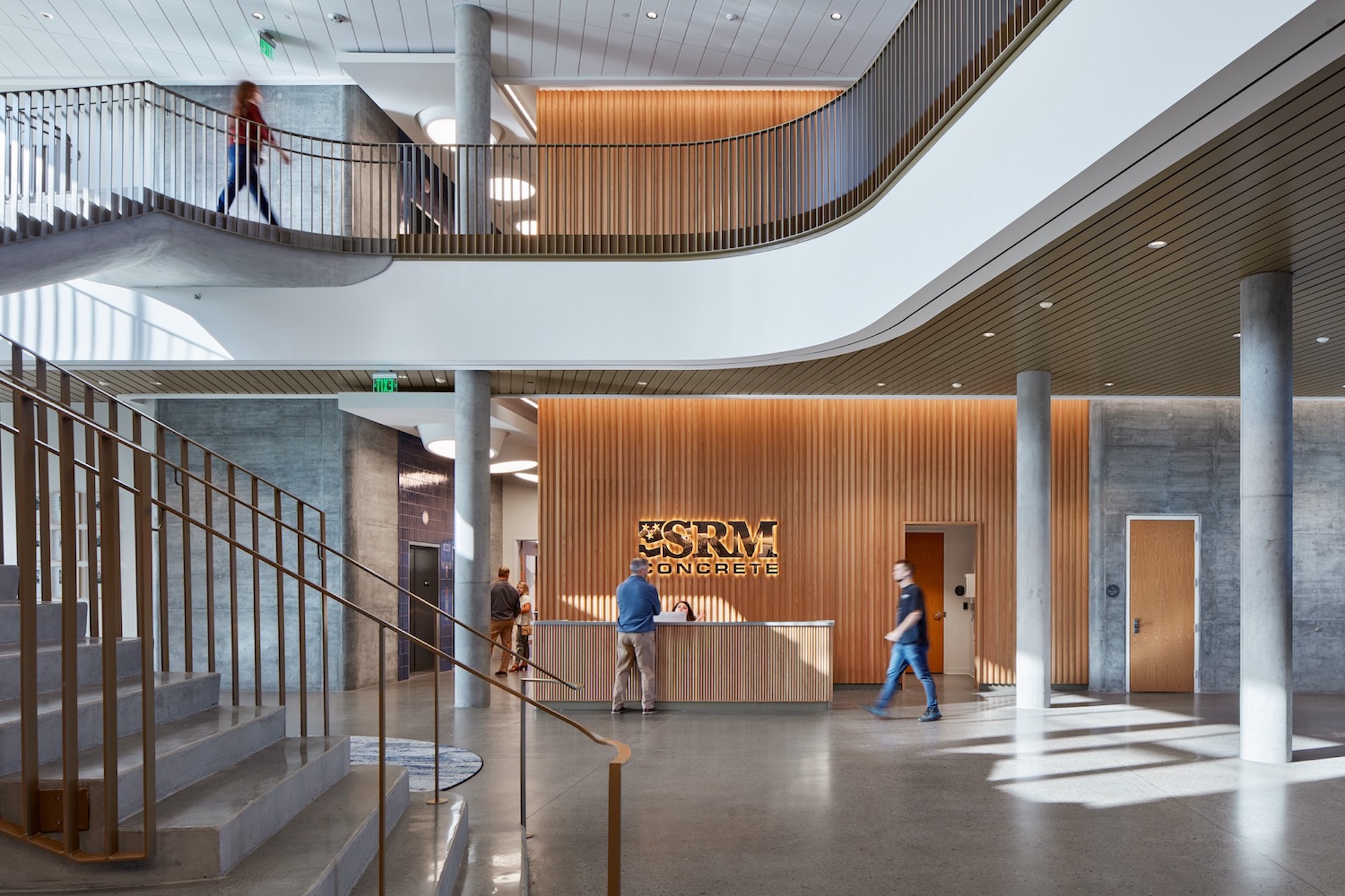
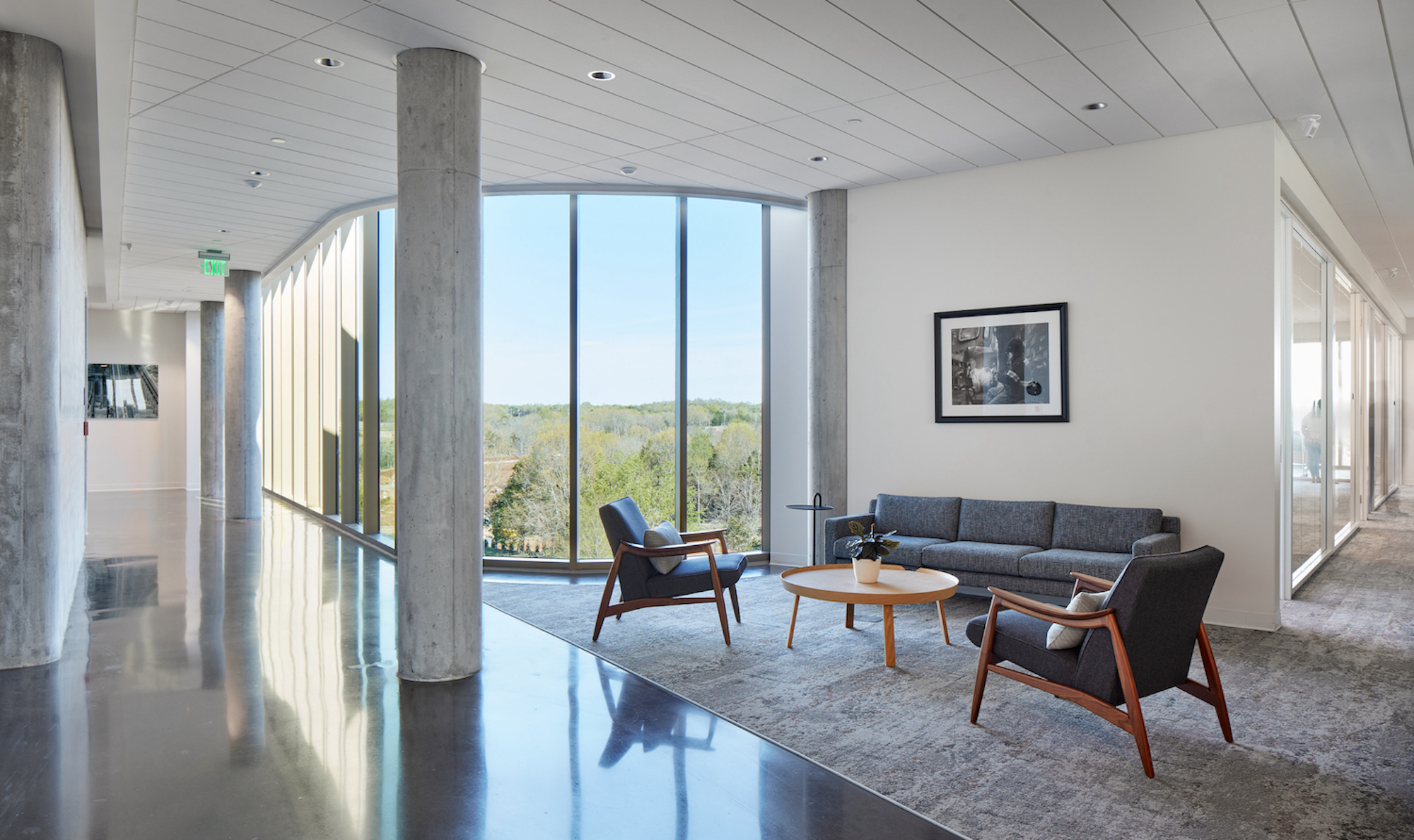
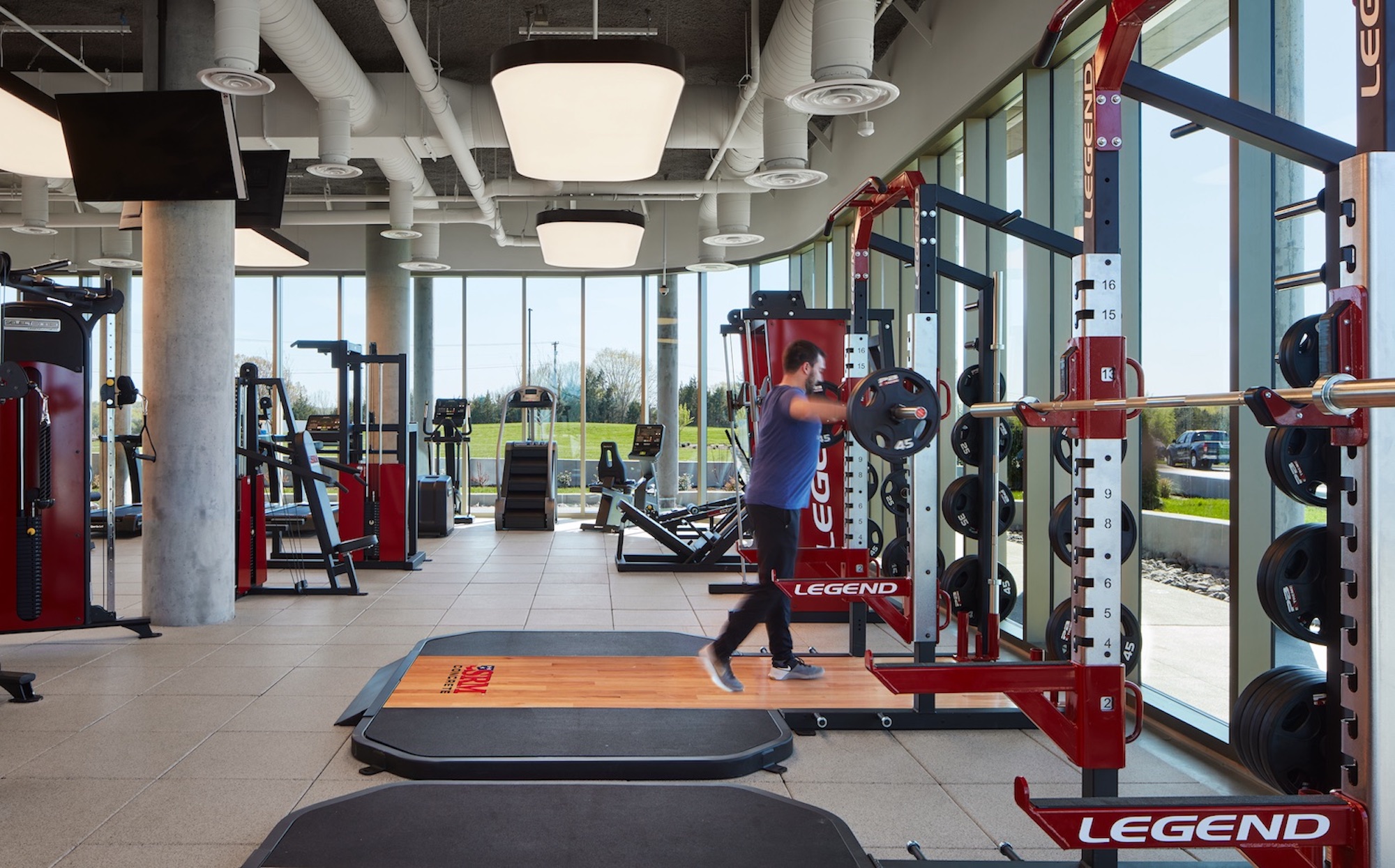
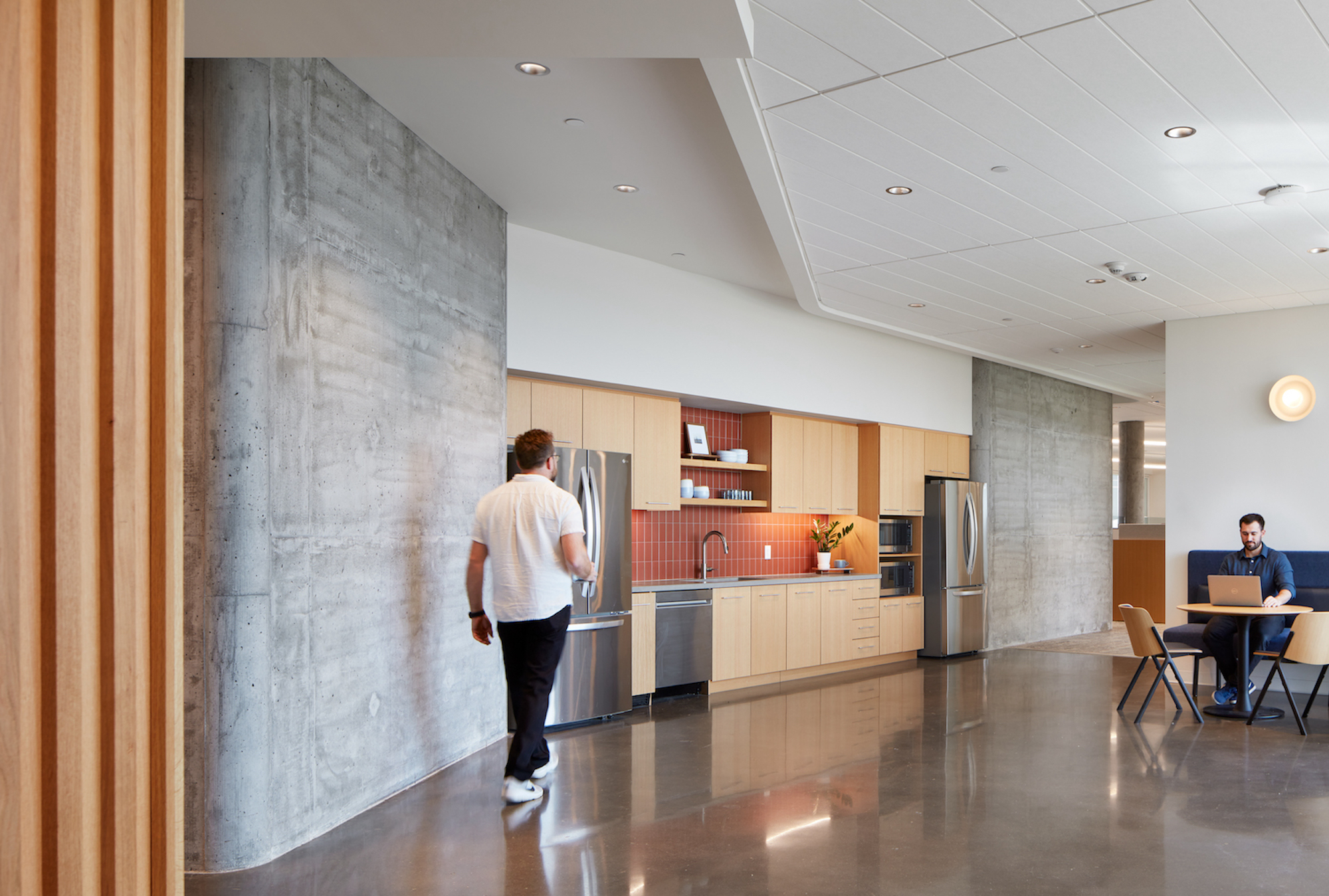
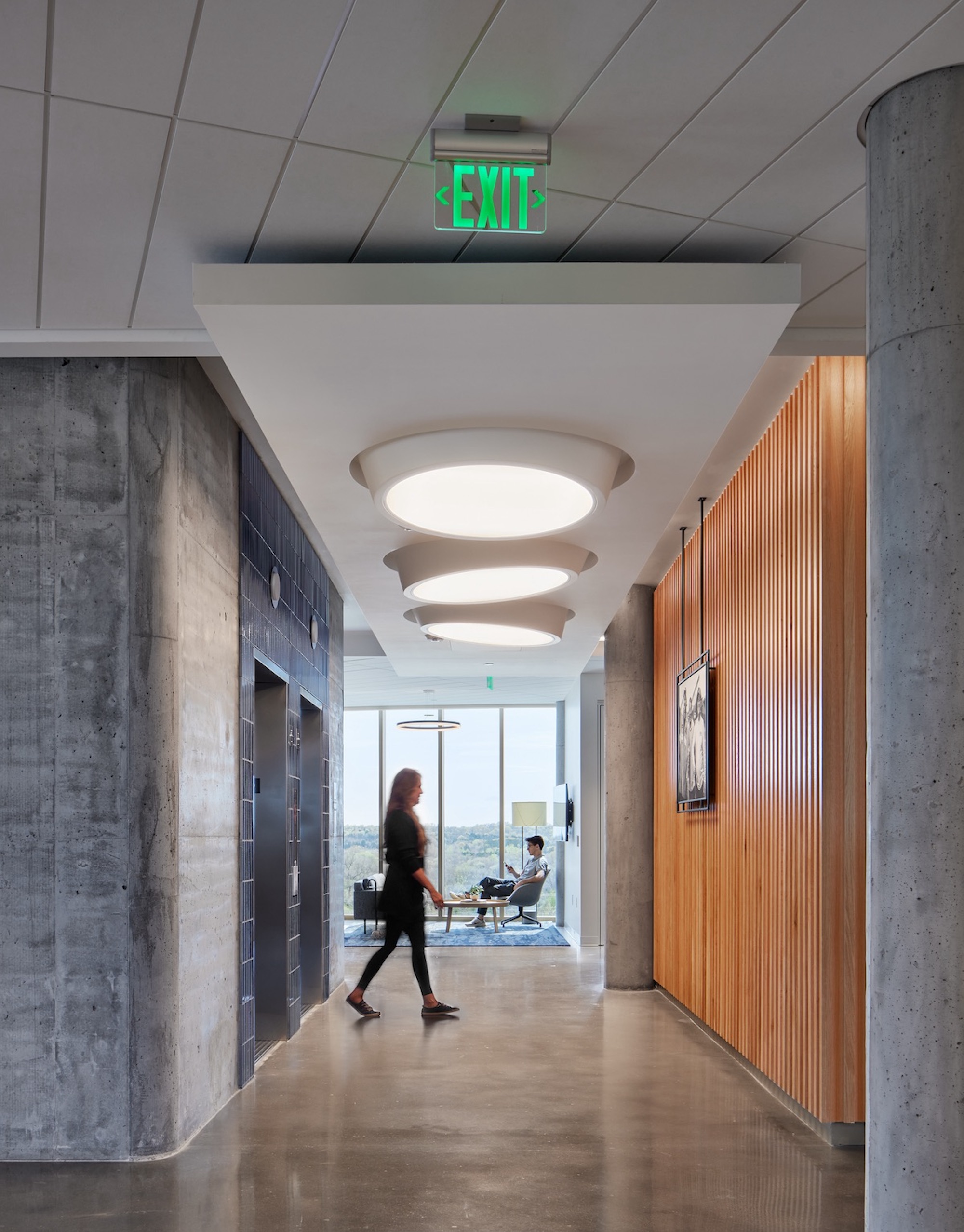
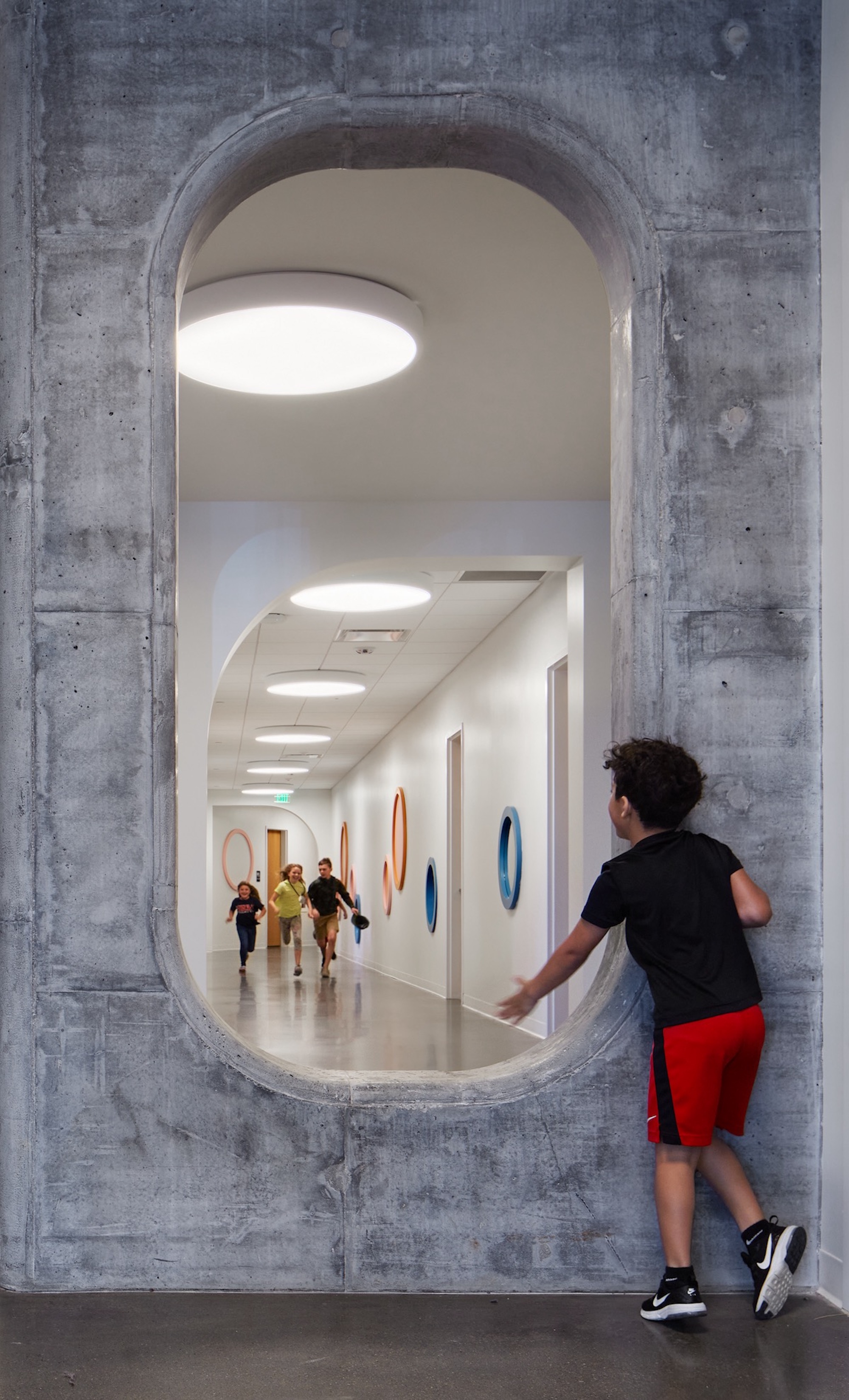
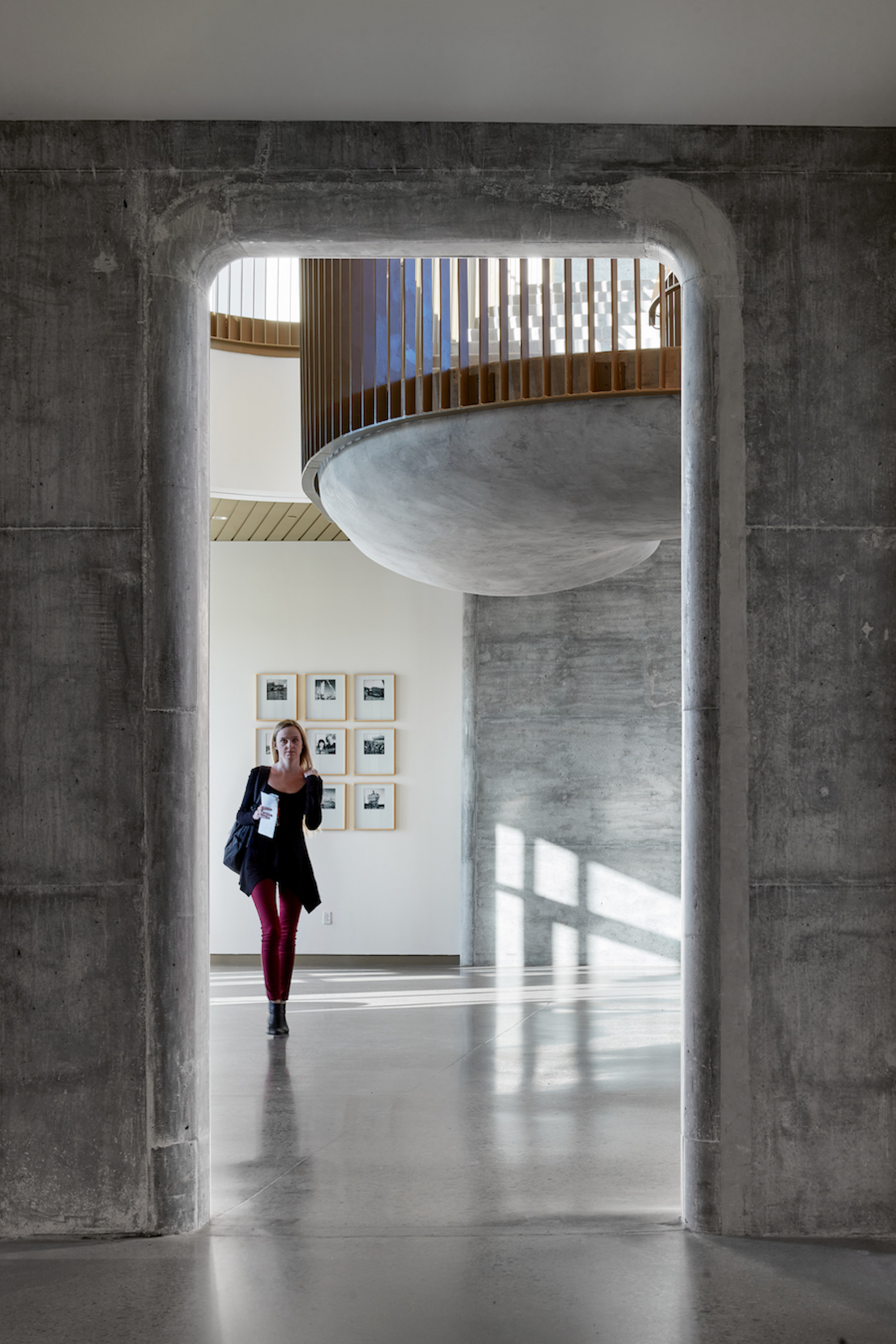
Related Stories
Adaptive Reuse | Mar 30, 2024
Hotel vs. office: Different challenges in commercial to residential conversions
In the midst of a national housing shortage, developers are examining the viability of commercial to residential conversions as a solution to both problems.
Sustainability | Mar 29, 2024
Demystifying carbon offsets vs direct reductions
Chris Forney, Principal, Brightworks Sustainability, and Rob Atkinson, Senior Project Manager, IA Interior Architects, share the misconceptions about carbon offsets and identify opportunities for realizing a carbon-neutral building portfolio.
Office Buildings | Mar 28, 2024
Workplace campus design philosophy: People are the new amenity
Nick Arambarri, AIA, LEED AP BD+C, NCARB, Director of Commercial, LPA, underscores the value of providing rich, human-focused environments for the return-to-office workforce.
Office Buildings | Mar 27, 2024
A new Singapore office campus inaugurates the Jurong Innovation District, a business park located in a tropical rainforest
Surbana Jurong, an urban, infrastructure and managed services consulting firm, recently opened its new headquarters in Singapore. Surbana Jurong Campus inaugurates the Jurong Innovation District, a business park set in a tropical rainforest.
Adaptive Reuse | Mar 26, 2024
Adaptive Reuse Scorecard released to help developers assess project viability
Lamar Johnson Collaborative announced the debut of the firm’s Adaptive Reuse Scorecard, a proprietary methodology to quickly analyze the viability of converting buildings to other uses.
Sustainability | Mar 21, 2024
World’s first TRUE-certified building project completed in California
GENESIS Marina, an expansive laboratory and office campus in Brisbane, Calif., is the world’s first Total Resource Use and Efficiency (TRUE)-certified construction endeavor. The certification recognizes projects that achieve outstanding levels of resource efficiency through waste reduction, reuse, and recycling practices.
Office Buildings | Mar 21, 2024
Corporate carbon reduction pledges will have big impact on office market
Corporate carbon reduction commitments will have a significant impact on office leasing over the next few years. Businesses that have pledged to reduce their organization’s impact on climate change must ensure their next lease allows them to show material progress on their goals, according to a report by JLL.
Adaptive Reuse | Mar 21, 2024
Massachusetts launches program to spur office-to-residential conversions statewide
Massachusetts Gov. Maura Healey recently launched a program to help cities across the state identify underused office buildings that are best suited for residential conversions.
Office Buildings | Mar 21, 2024
BOMA updates floor measurement standard for office buildings
The Building Owners and Managers Association (BOMA) International has released its latest floor measurement standard for office buildings, BOMA 2024 for Office Buildings – ANSI/BOMA Z65.1-2024.
Sustainability | Mar 13, 2024
Trends to watch shaping the future of ESG
Gensler’s Climate Action & Sustainability Services Leaders Anthony Brower, Juliette Morgan, and Kirsten Ritchie discuss trends shaping the future of environmental, social, and governance (ESG).


